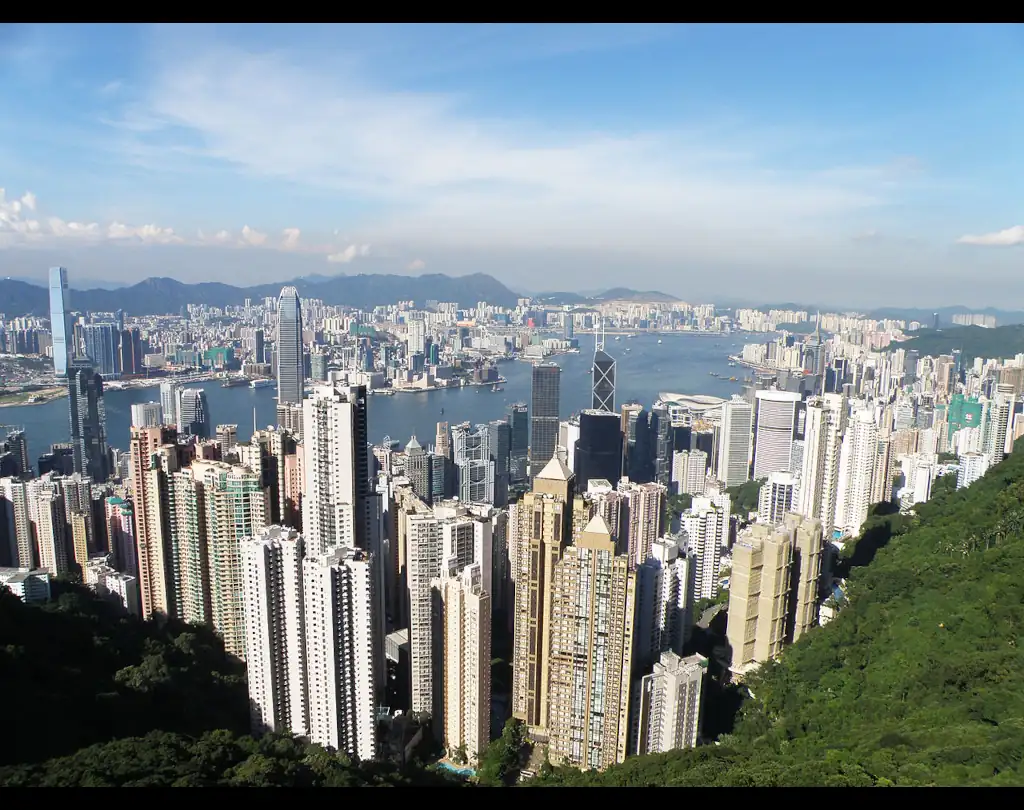Table of Contents
1. The particularity of Hong Kong real estate: a symbol of wealth and a label of social class
1.1 "Success Certification" under Abnormally High Housing Prices
Hong Kong has been ranked first among the cities with the heaviest housing price burden in the world for many years in a row. The median household income in 2023 is about HK$35,000, while the average house price is over HK$10 million. It takes more than 19 years of saving without eating or drinking to buy a house (Demographia data). This extreme contrast makes the "home-owning class" be regarded as winners who have crossed the economic threshold. The act of buying a house is given a sense of ritual of "unlocking life achievements", and owners are prone to develop a superior mentality of "I have defeated the system".
1.2 The “social currency” attribute of real estate assets
Hong Kong lacks comprehensive retirement protection and investment channels, and real estate has become the most stable tool for wealth storage. According to statistics from the Monetary Authority of Singapore, residential mortgage loans accounted for 23.61% of total bank loans in 2022, reflecting the deep integration of the property market and personal finances. When the rate of appreciation of real estate far exceeds the increase in wages (house prices increased more than 4 times from 2003 to 2023, while nominal wages only increased by about 70%), the actual wealth and self-identity of the owners expand with the property market, forming the value of "assets determine net worth".
1.3 Identity division caused by spatial scarcity
The per capita living area in Hong Kong is only 16 square meters (data from the Rating and Valuation Department in 2022), and there is a huge gap in living quality between private and public housing. Private residences are equipped with "soft class symbols" such as clubs and management services. Owners construct "elite circle" identity through the quality of consumption space, deriving a collective subconscious that "living in a private building = improved social status."
2. Psychological Compensation Mechanism under the Institutional Structure
2.1 Self-rationalization of the dilemma of house slaves
Homebuyers are burdened with mortgage pressures where the average monthly payment exceeds their income by 50% (data from Centaline), and their long-term frugality has led to a "sacrifice compensation mentality." Homeowners may balance their consumption inhibitions by highlighting the value of their properties. For example, they may emphasize the property's location and appreciation rate in social situations, thus translating the financial burden into proof of their "investment vision."
2.2 Stigmatization of public housing and sense of superiority of private housing
There are more than 44% people living in public housing in Hong Kong, but the label of "public housing dwellers" has long been shaped by the media into a synonym for "losers". In order to differentiate their identities, private home owners tend to strengthen the moral legitimacy of "owning their own home", for example, criticizing public housing benefits for cultivating "lazy people" and thereby consolidating their own narrative of "successful struggle".
3.3 The sense of privilege strengthened by policy bias
Government housing policies such as "tough measures" and mortgage ratio restrictions actually protect the interests of existing property owners. When new immigrants and young families are excluded from the market, the property owners are prone to develop a "vested interest mentality", attributing high housing prices to "market freedom" while ignoring structural injustices.
3. The Interweaving of Cultural Genes and Colonial Heritage
3.1 The traditional Chinese concept of “where there is land, there is wealth”
The Confucian idea of owning a home and settling down is deeply rooted in Hong Kong society. In the marriage market, "owning a home" is considered a necessary condition for choosing a spouse (Caritas survey: 68% women believe that men should own property). By fulfilling their traditional responsibilities by purchasing a home, homeowners gain a sense of moral superiority as "qualified members of society."
3.2 The legacy of land finance during the British colonial period
The British Hong Kong government’s “high land price policy” shaped an economic ethic that measured personal value by real estate. The land monopoly model continued after the handover, making the property market a totem for maintaining capitalist identity, and property owners unconsciously internalized the ideology that "owning a house = loyalty to the system."
3.3 Refugee mentality and asset anxiety
The post-war immigration wave created a "rootless consciousness", and real estate became an emotional anchor that replaced "hometown". The owners' strong possessiveness of the property reflects their anxiety about identity mobility, and they maintain their psychological security by defending the value of the property.

4. The Economics of Showing Off in the Social Media Era
4.1 Performance Consumption of Property Unboxing
"New house unboxing" on Instagram and Xiaohongshu has become a traffic code, and homeowners build a "lifestyle taste" persona by showcasing their decoration style and smart home appliances. This kind of "visual comparison" intensifies the competition to transform real estate into social capital.
4.2 KOLs fuel the real estate speculation culture
Financial influencers promote the myth of "getting rich by buying properties" and package leveraged investment as "proof of financial intelligence." Followers imitate the rhetoric of real estate speculation (such as "dig goods" and "financial skills") and deliberately use industry jargon when talking about real estate to project a professional image.
4.3 The Stratosphere Effect of Virtual Communities
Homeowner groups (such as "XX Housing Estate Valley" on Facebook) form a closed circle of privilege, where members strengthen their group identity by sharing property market information and disparaging tenants. This "information cocoon" phenomenon exacerbates the cognitive gap with non-owner groups.
5. Generational Differences and Value Disruption
5.1 Baby boomers’ asset authority
The post-war generation bought multiple properties at low prices during the economic boom and regarded real estate as the material basis of family authority. It is common to interfere with children’s marriage and career on the condition of “helping you pay the down payment”, continuing the dominant logic of “owner = parent”.
5.2 Millennials’ Real Estate Anxiety
Young homeowners often rely on their fathers to help them enter the market. While they are stigmatized as "daddy dependents," they are also eager to prove the legitimacy of their home buying decisions. This ambivalence may manifest itself as an overemphasis on personal effort (e.g., “I have a mortgage!”), leading to defensive self-aggrandizement.
5.3 Relative deprivation in shell-less snails
As many as 76% young people believe that they will never be able to own a home in their lifetime (Hong Kong Youth Association survey). The grassroots' hostility towards the owners' ostentatious behavior has in turn stimulated the owners to maintain their status in a more assertive manner, forming a vicious cycle of class confrontation.

6. Reflection and Solution: Identity Construction Beyond Real Estate Alienation
6.1 Institutional Criticism of the Government’s Role
Housing policies should get rid of the mindset of "maintaining stability in the property market", such as increasing the proportion of subsidized housing, imposing vacancy taxes, etc., to reduce the class labeling function of real estate from the root.
6.2 Value Reconstruction of Civil Society
Civil society groups are promoting the "right to housing" discussion, shifting housing justice from a personal achievement to a basic right. For example, the "Social Association" advocates rental control to reduce the conflict between renting and buying.
6.3 Cognitive decolonization at the individual level
Homeowners need to be aware of the structural incentives behind the inflated ego of real estate and try to view properties with a "wealth neutral" attitude, such as participating in community co-living programs to break down class barriers in living spaces.
Conclusion: From concrete jungle to spiritual wilderness
The inflated self-awareness of Hong Kong people after purchasing a house is actually a survival strategy jointly constructed by the deformed property market and cultural genes. To cure this collective psychological syndrome, housing reform is needed not only at the institutional level, but also depends on individuals to break away from the alienated logic of "only owning a house has value". When the right to housing returns to basic needs rather than identity competition, perhaps it will liberate freer life imaginations from steel and concrete.
Further reading:




